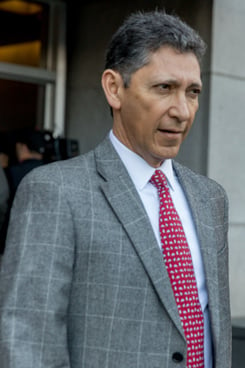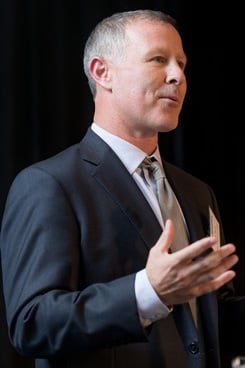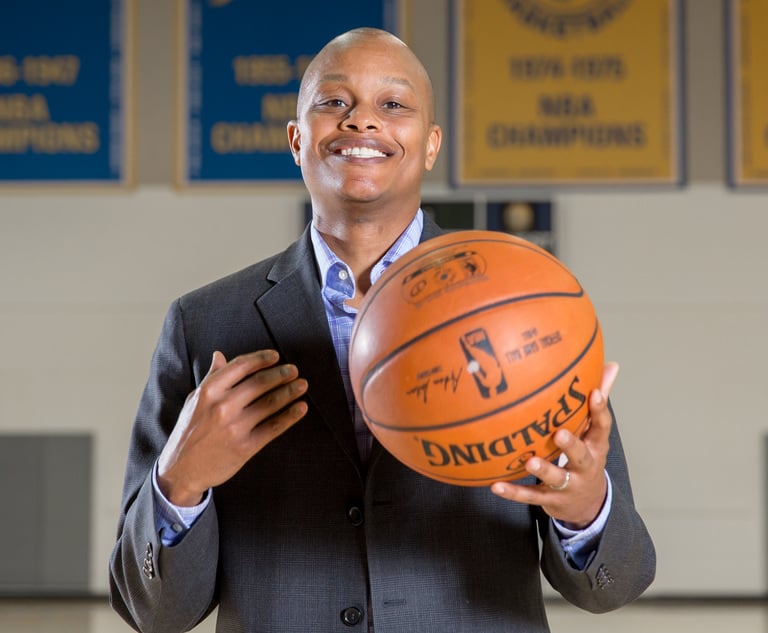'The Same, But Different': Learning to Litigate During a Public Health Crisis
Across the Bay Area, litigators who represent some of Silicon Valley's top companies report they are adjusting to litigating remotely, juggling family and work, and grappling with all the uncertainty caused by the coronavirus. But challenges remain.
March 30, 2020 at 08:00 AM
8 minute read
 (Photo: Shutterstock.com)
(Photo: Shutterstock.com)
The ongoing public health crisis is forcing Bay Area litigators to innovate rapidly, and at scale.
At Keker, Van Nest & Peters, the one-office San Francisco trial boutique where about 100 lawyers and about that many staff are accustomed to working under one roof at 633 Battery Street, managing partner Steven Taylor and his colleagues have transitioned to working from home and sheltering in place, except for a skeleton crew that checks on the building, opens legal mail, and keeps the firm's IT up-and-running. Despite the adjustments, the firm has managed to keep doing much of what it always does: A Keker team responded to a temporary restraining order motion for client Lyft last week, and on one day, the firm filed 25 different motions in nine different cases.
"There's a lot of the same, but different," Taylor said.
At Cooley, veteran litigator Michael Rhodes says he put on an internal program for firm associates called "Business Development in the Time of COVID-19." "With apologies to the late great writer Gabriel Garcia Marquez," he added. Rhodes also prepared for his first "virtual" mediation before retired federal judge Edward Infante, now a neutral at JAMS. "All in all it is a strange and weird time but we are practicing law as normally as can be expected—we just don't go to the office right now," he said.
At Boies Schiller Flexner, Quyen Ta said the pace for litigators remains busy, even with many trial dates being pushed back 60-to-90 days with courts closed to all but the most essential matters. While she said it's good to see that all the work can be done remotely, she says she still sees the need for legal teams to meet and see each other in person whenever that can be done safely. "Nothing beats face-to-face meetings and discussions, in my view," she said.
Across the Bay Area, litigators who represent some of Silicon Valley's top companies reported last week that after two weeks of sheltering in place, they are adjusting to litigating remotely, juggling family and work life, and working, as Taylor put it "the same, but different." Most also said that this highly stressful time has so far led to an uptick in civility and cooperation among opposing counsel.
"Most folks across the 'v' are acting responsibly and are genuinely concerned about health and welfare over the cases," said Cooley's Rhodes. "That has been a welcome development."
Taylor added that over the last few weeks there's been "an added layer of civility among opposing counsel"
"I would love that to stick," he said.
 Arturo Gonzalez, Morrison & Foerster.
Arturo Gonzalez, Morrison & Foerster.Pressing Pause
Morrison & Foerster's Arturo Gonzalez said that California Chief Justice Tani Cantil-Sakauye "absolutely did the right thing" last week by suspending jury trials statewide for 60 days. Gonzalez said he worries about a nephew who practices in Arizona, where some proceedings are still moving forward. "I am concerned about him and his co-workers. It is hard to believe that some states and some public officials still have not grasped the seriousness of this situation," he said.
Gonzalez said "when the dust settles" he expects that criminal cases will have priority, especially where defendants are in custody awaiting trial.
"Delays can be problematic because memories fade and witnesses may become unavailable," he said.
Taylor agreed that certain criminal matters will be the priority by necessity, but he said simply delaying and pushing off civil disputes can't be the answer since the same witness memory and availability issues will apply to civil cases. Taylor said that certainty is currently something that's very important for Bay Area clients, especially given the turmoil in the greater economy and financial markets.
"The courts know that these are issues that are very important to local employers and they need decisions on a timely basis in order to settle and resolve disputes," Taylor said. "We understand the courts are under pressure. I would encourage them to reach out more to the Bar Associations" and other constituents to figure out ways to move cases forward once things get moving again, Taylor added.
While the suspension of trials in state and federal court in the Bay Area has led to widespread extensions and filing delays, some courts are keeping things moving as much as possible on pretrial matters. Bijal Vakil, a White & Case partner in Silicon Valley whose docket is heavy on software intellectual property cases, said that moving ahead with discovery in cases where source code plays a central role presents a logistical dilemma that most courts have yet to grapple with.
With hundreds of cases involving software pending in the Northern District alone, Vakil said that certain activity in those cases has become impossible because of the shelter in place orders here in the Bay Area. Protective orders often require software source code to be viewed on-site by counsel and experts under restrictions meant to protect lines of code that are essentially the keys to the kingdom of some technology companies.
Moving forward with depositions by video, Vakil said, is impractical when the very subject of that deposition is out of everyone's physical reach. Even if he were able to pull up source code onto a computer screen as part of a video deposition, Vikal said, he couldn't risk showing his screen to a deposition subject or any other video technicians or outside parties needed to make those depositions move forward. "These are really specific problems with litigating software cases," Vikal said. Courts, he added, need to come to "a practical solution that works that protects the confidentiality of the source code and aligns with the provisions of the source code protective orders" already in place.
"I understand that the court is mindful of their deadlines, but they should also understand the practical realities that our companies face," Vakil said. "It's not like we have unlimited amounts of money to spend on litigation, specifically during these unprecedented times." Vakil suggested that parties should be allowed to come to mutual, stipulated agreements about how to move forward in those cases, where possible.
 Steven Taylor, Keker, Van Nest & Peters.
Steven Taylor, Keker, Van Nest & Peters.Keker's Taylor said that he could see similar problems popping up in cases involving trade secrets or a need to physically examine a person or facility. But he said his firm has been in the middle of preparing a batch of expert reports that are document-based, something that's possible since discovery vendors have been working over the past few years to make those sorts of documents available remotely. Taylor, however, added that lawyers working from home have to pay close attention to taking necessary steps to protect sensitive documents.
But even in trade secret cases, Taylor says he can see situations where a company might bring a temporary restraining order in a case accusing an employee of stealing trade secrets where courts would move with some urgency in the current climate. "If someone feels like time is of the essence, that doesn't stop because of coronoavirus," he said. "Courts have indicated they don't want to see things that aren't really important, but a request for a temporary restraining order is still pretty important and courts are still engaging on that."
What Will "Normal" Be Whenever We're Back To It?
Gonzalez, who has commuted to the Morrison & Foerster office in San Francisco from the East Bay for 35 years, admitted that he's not sure when he'll be comfortable stepping onto a crowded train to commute into the city. "Regardless of when and how this is resolved, I think many lawyers will spend more time working from home," Gonzalez said. "I'm not sure that's a good thing for our profession."
Gonzalez said that he's been spending more time on video conference helping witnesses prepare and meeting with clients. While that has saved some valuable travel time, he said, it has cut down on personal interactions with clients. Said Gonzales: "There are times when what happens in the hallway is more important than what happens in the meeting."
Read more:
Judiciary Endorses Emergency Court Procedures Amid Virus Pandemic
How the COVID-19 Crisis Is Reshaping Alternative Dispute Resolution
Governor Gives Chief Justice 'Unprecedented' Authority to Address Pandemic
Lawyers Watch for Consumer Class Actions as COVID-19 Hits Pocketbooks
How COVID-19 Is Impacting California Courts: Roundup of Services
NOT FOR REPRINT
© 2025 ALM Global, LLC, All Rights Reserved. Request academic re-use from www.copyright.com. All other uses, submit a request to [email protected]. For more information visit Asset & Logo Licensing.
You Might Like
View All
On The Move: Squire Patton Boggs, Akerman Among Four Firms Adding Atlanta Partners
7 minute read
NBA Players Association Finds Its New GC in Warriors Front Office

Eagles or Chiefs? At These Law Firms, Super Bowl Sunday Gets Complicated
3 minute read
Law Firms Mentioned
Trending Stories
- 1ACC CLO Survey Waves Warning Flags for Boards
- 2States Accuse Trump of Thwarting Court's Funding Restoration Order
- 3Microsoft Becomes Latest Tech Company to Face Claims of Stealing Marketing Commissions From Influencers
- 4Coral Gables Attorney Busted for Stalking Lawyer
- 5Trump's DOJ Delays Releasing Jan. 6 FBI Agents List Under Consent Order
Who Got The Work
J. Brugh Lower of Gibbons has entered an appearance for industrial equipment supplier Devco Corporation in a pending trademark infringement lawsuit. The suit, accusing the defendant of selling knock-off Graco products, was filed Dec. 18 in New Jersey District Court by Rivkin Radler on behalf of Graco Inc. and Graco Minnesota. The case, assigned to U.S. District Judge Zahid N. Quraishi, is 3:24-cv-11294, Graco Inc. et al v. Devco Corporation.
Who Got The Work
Rebecca Maller-Stein and Kent A. Yalowitz of Arnold & Porter Kaye Scholer have entered their appearances for Hanaco Venture Capital and its executives, Lior Prosor and David Frankel, in a pending securities lawsuit. The action, filed on Dec. 24 in New York Southern District Court by Zell, Aron & Co. on behalf of Goldeneye Advisors, accuses the defendants of negligently and fraudulently managing the plaintiff's $1 million investment. The case, assigned to U.S. District Judge Vernon S. Broderick, is 1:24-cv-09918, Goldeneye Advisors, LLC v. Hanaco Venture Capital, Ltd. et al.
Who Got The Work
Attorneys from A&O Shearman has stepped in as defense counsel for Toronto-Dominion Bank and other defendants in a pending securities class action. The suit, filed Dec. 11 in New York Southern District Court by Bleichmar Fonti & Auld, accuses the defendants of concealing the bank's 'pervasive' deficiencies in regards to its compliance with the Bank Secrecy Act and the quality of its anti-money laundering controls. The case, assigned to U.S. District Judge Arun Subramanian, is 1:24-cv-09445, Gonzalez v. The Toronto-Dominion Bank et al.
Who Got The Work
Crown Castle International, a Pennsylvania company providing shared communications infrastructure, has turned to Luke D. Wolf of Gordon Rees Scully Mansukhani to fend off a pending breach-of-contract lawsuit. The court action, filed Nov. 25 in Michigan Eastern District Court by Hooper Hathaway PC on behalf of The Town Residences LLC, accuses Crown Castle of failing to transfer approximately $30,000 in utility payments from T-Mobile in breach of a roof-top lease and assignment agreement. The case, assigned to U.S. District Judge Susan K. Declercq, is 2:24-cv-13131, The Town Residences LLC v. T-Mobile US, Inc. et al.
Who Got The Work
Wilfred P. Coronato and Daniel M. Schwartz of McCarter & English have stepped in as defense counsel to Electrolux Home Products Inc. in a pending product liability lawsuit. The court action, filed Nov. 26 in New York Eastern District Court by Poulos Lopiccolo PC and Nagel Rice LLP on behalf of David Stern, alleges that the defendant's refrigerators’ drawers and shelving repeatedly break and fall apart within months after purchase. The case, assigned to U.S. District Judge Joan M. Azrack, is 2:24-cv-08204, Stern v. Electrolux Home Products, Inc.
Featured Firms
Law Offices of Gary Martin Hays & Associates, P.C.
(470) 294-1674
Law Offices of Mark E. Salomone
(857) 444-6468
Smith & Hassler
(713) 739-1250






